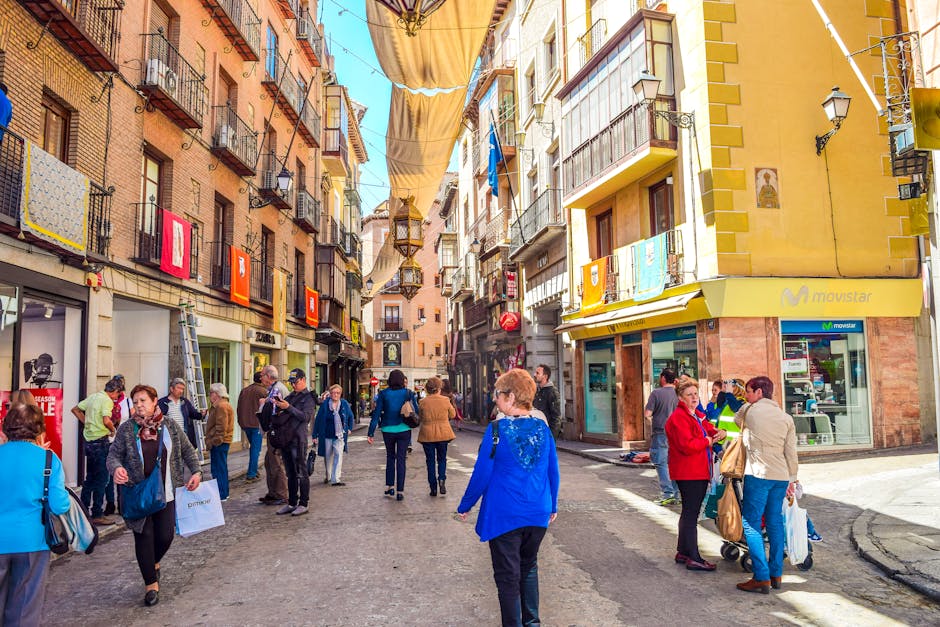The Importance of Respecting Cultures While Traveling
Traveling to new places is an exciting and enriching experience. It allows us to explore different cultures, try new foods, and broaden our perspectives. However, with this privilege comes the responsibility of respecting the cultures and customs of the places we visit. As a frequent traveler, I have learned the importance of respecting local cultures and interacting with locals in a respectful and mindful manner. In this blog post, I will share some tips on how to interact with locals while traveling and how to show respect for their cultures.
Learn About the Culture Beforehand
Before embarking on your journey, take some time to research and learn about the culture of the place you are visiting. This will not only enhance your travel experience but also help you understand the local customs and traditions. You can read books, watch documentaries, or even join online forums to learn about the culture, history, and social norms of the place. This will also help you avoid any unintentional cultural faux pas.
Be Mindful of Your Attire
Clothing is an essential aspect of culture, and what may be acceptable in one place may be considered offensive in another. It is crucial to dress respectfully and appropriately, especially when visiting religious or sacred sites. For example, in many Southeast Asian countries, it is customary to cover your shoulders and legs when entering temples or other religious sites. By dressing appropriately, you show respect for the local culture and avoid offending anyone.
Learn Basic Phrases in the Local Language
Learning a few basic phrases in the local language can go a long way in building a connection with the locals. It shows that you are making an effort to communicate and understand their culture. Simple phrases like “hello,” “thank you,” and “please” can make a huge difference in how you are perceived by the locals. You can also download language learning apps or carry a phrasebook with you for quick reference.
Observe and Follow Local Customs
Every culture has its unique customs and traditions, and it is essential to observe and follow them while traveling. For example, in Japan, it is customary to remove your shoes before entering someone’s home or certain establishments. In many Middle Eastern countries, it is considered rude to show the soles of your feet to someone. By observing and following these customs, you show respect for the local culture and avoid causing any offense.
Be Open-Minded and Respectful of Differences
As travelers, we must remember that our way of life is not the only way. Embrace the differences you encounter and be open-minded to new experiences. Show respect for the local customs, even if they are different from what you are used to. Avoid making judgments or criticizing the local way of life. Instead, try to understand and appreciate the unique aspects of the culture you are visiting.
Engage in Meaningful Interactions with Locals
Interacting with locals is one of the best ways to learn about a new culture. Strike up conversations with people you meet, whether it’s your tour guide, a street vendor, or a fellow traveler. Ask them about their culture, traditions, and way of life. People are usually happy to share their knowledge and experiences with curious travelers. This will not only enhance your understanding of the culture but also create meaningful connections with the locals.
Avoid Exploiting the Local Culture
While it is tempting to take part in cultural activities and traditions that are marketed towards tourists, it is essential to question the authenticity and intentions behind them. Avoid participating in activities that exploit the local culture or traditions for commercial gain. Instead, look for authentic and sustainable ways to support the local community, such as buying from local businesses or participating in community-based tourism initiatives.
Seek Permission Before Taking Photos
In the age of social media and smartphone cameras, it is easy to forget that not everyone wants their photo taken. Before taking photos of people or their belongings, always seek permission. This is especially important when taking photos of religious or sacred sites, as some cultures may consider it disrespectful. If someone declines to be photographed, respect their wishes and move on.
Show Gratitude and Appreciation
Saying “thank you” can go a long way in showing your appreciation for the hospitality and kindness of the locals. Whether it’s a small gesture like buying a souvenir from a local vendor or a more significant act of kindness, always show your gratitude. It not only makes the locals feel appreciated but also leaves a positive impression of your culture on them.
Final Thoughts
Respecting cultures while traveling is not only about avoiding offense, but it is also about building connections and understanding. By following these tips, you can ensure that your




